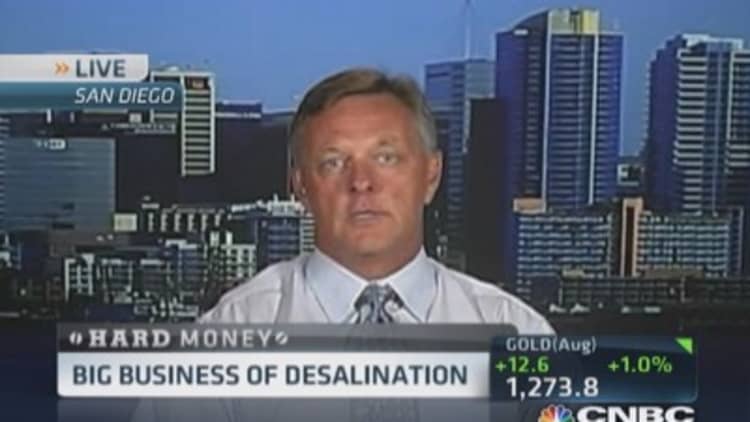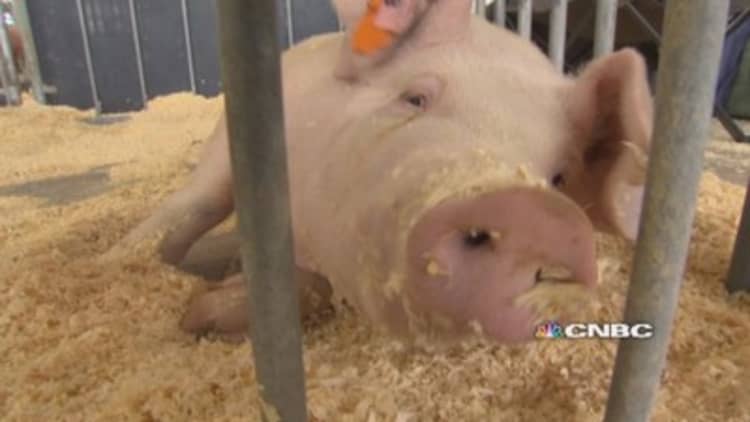
The severe drought parching states in the Southwest and West is undoubtedly causing hardships:The list includes higher prices for food and water, water-use restrictions, blazing wildfires and billions of dollars in lost productivity.
But most people seem to be taking it in stride—even within drought states. A recent poll by the Los Angeles Times indicated that only 16 percent of those surveyed in California say it has personally affected them in a measurable way. That's despite the Golden State being in its third year of drought and in a state of emergency since January.
Why is there so much indifference?
'"I think one reason why you end up with this distance about water is that if the water comes out when you turn on the tap, even with restrictions, then everything's OK," said Kristen Averyt, associate director for science at the Cooperative Institute for Research in Environmental Sciences at the University of Colorado, Boulder. "Only when it hits you personally do people connect the dots."
Averyt added that population centers on the East Coast and elsewhere in the U.S. have enough water, so to them, the drought hitting other states seems almost as if it's in another country.
Read MoreDrought vs. legislatures: Drought is winning
Adding to the somewhat blase feeling is an assumption that drought conditions are normal, said Lynn Wilson, an academic chairwoman at Kaplan University and an environmental researcher.
She and others have pointed to California, which in the late 1970s went through a harsh drought. "Especially in Western states, we have a history of drought and a lack of water so it's easy to think that this is merely a way of life," she said.
Those on margins 'suffering'
Another reason for a general lack of worry is that the majority of those who feel the pain from the drought live at society's margin, said Christiana Peppard, an assistant professor of theology, science and ethics at Fordham University.
"You've got displaced migrant farm workers losing jobs, or people living in situations of poverty who may be buying more processed foods as prices rise," Peppard said. "It's these kinds of people who feel the effects of environmental change and have the fewest resources to offset the new situation."

Softening the drought's severity may be easier because states and local water utilities have learned how to protect a valuable resource, said Craig Cox, senior vice president of agriculture and natural resources at the Environmental Working Group.
Read MoreWarning: Many watersheds in US failing 'stress test'
"There are some success stories when it comes to water management," he said. "Some communities have really taken to water conservation and diversified their water sources and are ahead of the game."
The drought's effect on food prices is less than it could have been because imports have kept domestic prices from growing higher and hurting more pocketbooks, according to analysts.
Read MoreNot even severe drought can stop fracking
And for farmers—many of whom are forced to fallow crops because of a lack of water—government assistance has been a welcome relief, said Ernie Gross, professor of economics at Creighton University.
"Crop insurance helps mitigate the financial pain for those that have it," he said. "It's a huge benefit for farmers."
Why California matters
Dry conditions are expected to worsen over the summer, according to the United States Drought Monitor. But ignoring the lack of water comes with risk—especially if conditions don't improve in California, said Averyt.
"California is a key state. If things worsen there, we can see higher food prices and possible economic problems. It has that much of an impact," she said.
"I don't take the apocalyptic approach to the drought," Averyt added. "But It's something every American should pay attention to."
—By CNBC's Mark Koba


